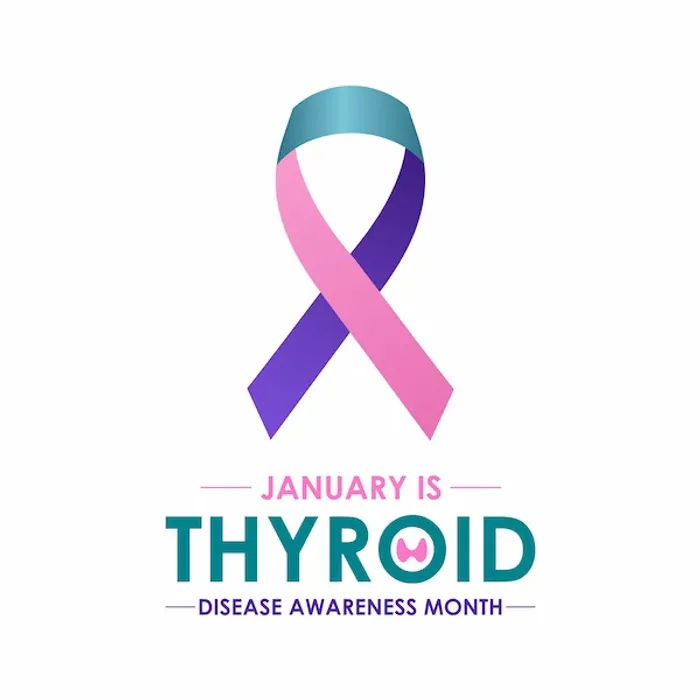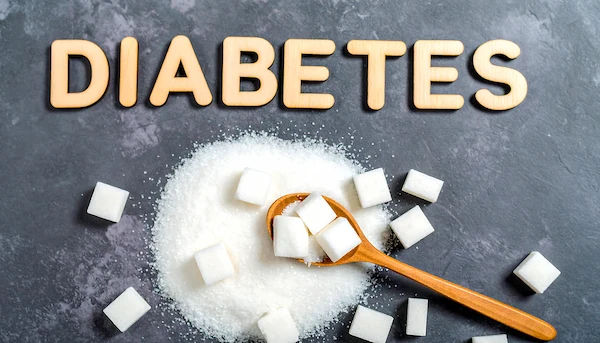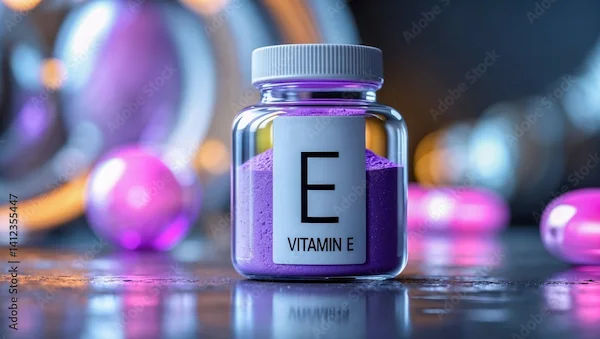World Thyroid Day 2025: Your Essential Guide to Awareness & Action
Know about the thyroid day, what it is about, common types of thyroid problems, diagnosis, treatment and management of thyroid diseases.

Written by Dr. Siri Nallapu
Reviewed by Dr. Shaik Abdul Kalam MD (Physician)
Last updated on 13th Jan, 2026

Introduction
Every year on May 25th, the global health community unites to observe World Thyroid Day. This dedicated day serves as a crucial reminder of the small, butterfly-shaped gland in our necks that plays an enormous role in our overall well-being. Often called the body's master controller, the thyroid gland influences everything from your energy levels and weight to your mood and heart rate. Yet, thyroid disorders are among the most common endocrine conditions worldwide, affecting hundreds of millions, with a significant number remaining undiagnosed. This guide is designed to demystify thyroid health, empower you with knowledge about common disorders like hypothyroidism and hyperthyroidism, and highlight the importance of early detection and effective management.
What is World Thyroid Day and Why Does It Matter?
World Thyroid Day (WTD) is not just a date on the calendar; it's a global initiative driven by patient advocacy groups and clinical societies like the American Thyroid Association and the European Thyroid Association. The primary goal is twofold: to educate the public and healthcare professionals about thyroid diseases and to emphasise the critical importance of prevention, early diagnosis, and effective treatment.
Consult a Top Endocrinologist for Personalised Advice
The History and Mission Behind the Day
World Thyroid Day was established in 2008 by the European Thyroid Association, later joined by the American Thyroid Association and the Latin American Thyroid Society. The choice of May 25th commemorates the founding of the European Thyroid Association in 1965. The mission is rooted in addressing a significant global health challenge: the vast number of people living with undiagnosed thyroid conditions. By shining a spotlight on this gland, the day aims to reduce suffering, improve quality of life, and save lives through increased awareness.
Understanding the 2024 Theme: "Thyroid and Communication"
Each year, a theme is chosen to focus efforts. The theme for World Thyroid Day 2024 is "Thyroid and Communication." This theme operates on multiple levels. It highlights the need for clear communication between patients and healthcare providers to ensure proper diagnosis and management. It also refers to the thyroid's role in "communicating" with the rest of the body through hormones. Furthermore, it encourages open dialogue within families and communities about thyroid health, breaking down stigmas and encouraging people to seek help for often-overlooked symptoms like persistent fatigue or brain fog.
Getting to Know Your Thyroid: The Body's Master Gland
Before diving into disorders, it's essential to understand what the thyroid is and why it's so vital. Located at the base of your neck, this small gland might be inconspicuous, but its function is monumental.
What is the Thyroid and What Does It Do?
The thyroid gland is a key part of the endocrine system, a network of glands that produce hormones. Its butterfly-like shape allows it to wrap around the windpipe (trachea). The sole purpose of the thyroid is to take iodine from the food we eat and convert it into two primary hormones: Triiodothyronine (T3) and Thyroxine (T4).
How Thyroid Hormones Regulate Your Metabolism
Think of your thyroid as the thermostat for your body's metabolism. The T3 and T4 hormones it releases travel through your bloodstream to every cell and tissue. They regulate the speed at which your body's cells work—a process known as your metabolic rate. When your thyroid produces the right amount of hormones, your body is in balance. You have energy, maintain a stable weight, and your organs function correctly. However, when this production is too slow or too fast, it can lead to a cascade of health issues, which we will explore next. Understanding the symptoms of thyroid problems is the first step toward recognizing a potential imbalance.
Common Thyroid Disorders You Should Know About
Thyroid disorders primarily fall into two categories: those that slow the gland down and those that speed it up. Recognizing the signs is crucial for seeking timely medical advice.
Hypothyroidism (Underactive Thyroid)
This occurs when the thyroid gland does not produce enough hormones, effectively slowing down the body's processes. It's like the body is running on low power mode.
Key Symptoms of an Underactive Thyroid:
* Unexplained fatigue and lethargy
* Weight gain or difficulty losing weight
* Feeling cold all the time (cold intolerance)
* Dry skin and hair, and hair loss
* Depression, brain fog, and memory problems
* Constipation
* Heavy or irregular menstrual periods
Primary Causes: Hashimoto's Thyroiditis and More
The most common cause of hypothyroidism in iodine-sufficient countries is Hashimoto's thyroiditis, an autoimmune disorder where the body's immune system mistakenly attacks the thyroid gland. Other causes include surgical removal of the thyroid, radiation treatment, and certain medications.
Hyperthyroidism (Overactive Thyroid)
In contrast, hyperthyroidism is a condition where the thyroid is overactive and produces an excess of hormones, putting the body's systems into overdrive.
Key Symptoms of an Overactive Thyroid:
* Anxiety, nervousness, and irritability
* Unexplained weight loss despite increased appetite
* Rapid or irregular heartbeat (palpitations)
* Feeling hot and excessive sweating (heat intolerance)
* Tremors in the hands
* Frequent bowel movements
* Enlarged thyroid gland (goiter)
Primary Causes: Graves' Disease and More
The leading cause of hyperthyroidism is Graves' disease, another autoimmune disorder where antibodies stimulate the thyroid to produce too much hormone. Thyroid nodules can also become autonomous and overproduce hormones.
Other Conditions: Goiter, Nodules, and Thyroid Cancer
Beyond hormone imbalances, structural issues can arise. A goiter is a general enlargement of the thyroid gland. Thyroid nodules are lumps that form within the thyroid; most are benign, but some require evaluation. Thyroid cancer, while a concerning diagnosis, is generally very treatable, especially when detected early.
How are Thyroid Problems Diagnosed?
Diagnosing a thyroid condition is typically a straightforward process, beginning with a conversation about your symptoms of thyroid problems in females and males followed by specific tests.
The Role of TSH, T3, and T4 Blood Tests
The cornerstone of thyroid diagnosis is a blood test. The most important test measures Thyroid-Stimulating Hormone (TSH), which is produced by the pituitary gland in the brain. Think of TSH as a message to the thyroid: "Produce more hormones!".
High TSH typically indicates the thyroid is underactive (hypothyroidism) because the pituitary is shouting to get a response.
Low TSH suggests the thyroid is overactive (hyperthyroidism) because the pituitary has stopped asking for more hormones.
Doctors often also check levels of Free T4 and sometimes T3 to confirm the diagnosis.
Additional Tests: Ultrasound and Fine-Needle Aspiration
If a nodule or goiter is suspected or felt during a physical exam, a thyroid ultrasound is used to visualize the gland's structure. If a nodule appears suspicious, a fine-needle aspiration (FNA) biopsy may be performed, where a small sample of cells is extracted with a thin needle for analysis to rule out cancer. If you're experiencing persistent symptoms, consulting a doctor for these evaluations is essential. Platforms like Apollo24|7 make it easy to consult a doctor online for an initial assessment and to get the necessary lab test requisitions, with options for convenient home collection.
Living Well with a Thyroid Condition: Management and Lifestyle
A thyroid diagnosis is not a life sentence of feeling unwell. With proper management, most people with thyroid conditions lead full, active lives.
The Importance of Medication Adherence
For hypothyroidism, the standard treatment is daily hormone replacement medication, usually levothyroxine. The key is consistency taking the medication on an empty stomach as prescribed. It's not a cure but a lifelong management tool that effectively restores hormone balance. For hyperthyroidism, treatments may include anti-thyroid medications, radioactive iodine therapy, or surgery.
Diet and Nutrition Tips for Thyroid Health
While no specific "thyroid diet" exists, a balanced diet supports overall health. Iodine, selenium, and zinc are crucial for thyroid function. However, those with Hashimoto's should be mindful of excessive iodine intake. Some evidence suggests that a gluten-free diet may benefit some individuals with autoimmune thyroid disease, but this should be discussed with a doctor or dietitian. Finding the best diet for hypothyroidism is often about individualised nutrition.
The Impact of Stress and Exercise
Chronic stress can exacerbate thyroid symptoms by disrupting hormonal balance. Incorporating stress-reduction techniques like yoga, meditation, or regular walks is beneficial. Exercise is also vital; it can help combat fatigue in hypothyroidism and manage anxiety in hyperthyroidism, but intensity should be tailored to individual energy levels.
How You Can Participate in World Thyroid Day
Awareness days are only as powerful as the actions they inspire. Here’s how you can make a difference.
Spreading Awareness on Social Media
Use hashtags like #WorldThyroidDay, #ThyroidAwareness, and #CheckYourNeck to share facts, infographics, or your personal story. A single post can reach someone who has been suffering in silence.
Organising or Attending a Health Camp
Many hospitals and clinics organize free thyroid screening camps around May 25th. Participate in one or volunteer to help. Early detection is the best gift you can give to your community.
The Most Important Step: Getting Yourself Checked
The most impactful action you can take is personal. If you resonate with any of the symptoms mentioned, or if you have a family history of thyroid disease, make a commitment to get tested. A simple blood test can provide clarity and set you on the path to better health. If your condition does not improve after trying lifestyle methods, or if you need a diagnosis, booking a physical visit to a doctor with Apollo24|7 ensures you get comprehensive care.
Conclusion
World Thyroid Day serves as an annual checkpoint, a moment to reflect on the profound importance of a gland that often works tirelessly in the background. Understanding the signs of a potential thyroid imbalance empowers you to take control of your health journey. With advanced diagnostic tools, effective treatments, and a proactive approach to wellness, living a full and vibrant life with a thyroid condition is not just possible—it's the expected outcome. This May 25th, let's move beyond mere awareness and into action. Listen to your body, advocate for your health, and encourage others to do the same. Share this knowledge, because in the world of health, communication truly is power. If you have concerns about your thyroid health, taking the first step to consult a doctor online with Apollo24|7 can provide the clarity and guidance you need.
Consult a Top Endocrinologist for Personalised Advice
Consult a Top Endocrinologist for Personalised Advice

Dr. Anand Ravi
General Physician
2 Years • MBBS
Bengaluru
PRESTIGE SHANTHINIKETAN - SOCIETY CLINIC, Bengaluru

Dr. E Prabhakar Sastry
General Physician/ Internal Medicine Specialist
40 Years • MD(Internal Medicine)
Manikonda Jagir
Apollo Clinic, Manikonda, Manikonda Jagir
(175+ Patients)

Dr. Chaithanya R
Internal Medicine Specialist Diabetologist
16 Years • MBBS, MD Internal Medicine, Fellowship in Diabetes(UK), CCEBDM(PHFI)
Bangalore
Apollo Clinic Bellandur, Bangalore
(75+ Patients)
Aditya Singh
Endocrinologist
8 Years • MBBS
Bengaluru
Apollo One Electronic City, Bengaluru

Dr. Shruthi B
Endocrinologist
20 Years • MBBS,MD ( GEN MED) DM (ENDOCRIONOLOGY)
Bengaluru
Apollo Clinic, JP nagar, Bengaluru




